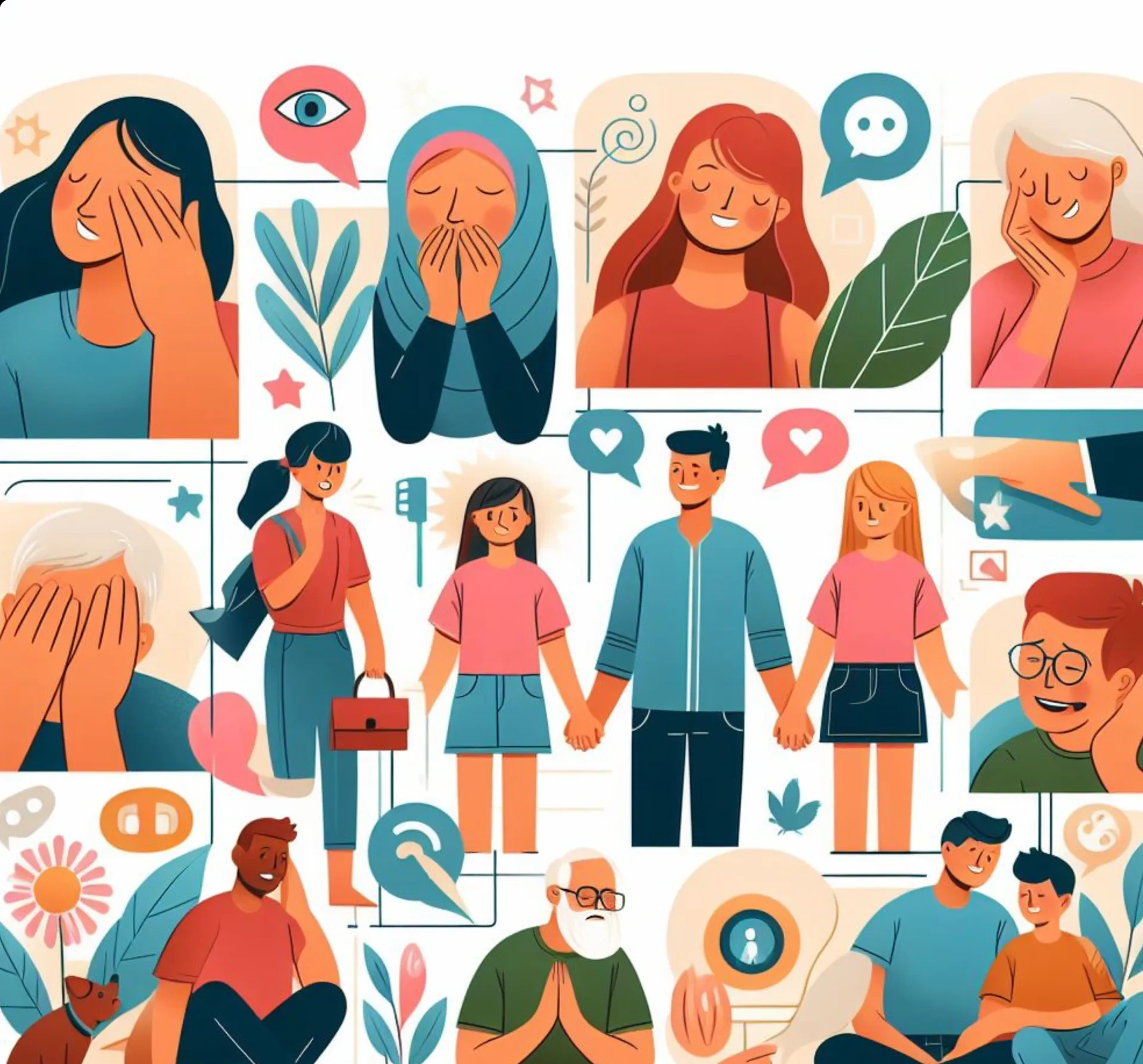How To Not Take Things Personally
Not taking things personally is a common issue for many clients and people who responded to previous relationship surveys.
In this article I will discuss what you need to do to not take things personally when things come up between you and your partner. While a book could be written on the subject I will net out the essentials.
Most Reactions Are Based On Past Memories
The first thing that is useful to know about any reaction to any life experience is that the response is being triggered by a mechanism in the brain that has good intentions. The problem with this mechanism is it bases its decision to respond on comparisons from the past. Let me explain.
You’ve listen to me talk about implicit memory right? If not check out these articles:
The mechanism in the brain is called the amygdala and it’s sole responsibility is to keep us safe. It’s like having a sentry outside your front door making sure it doesn’t let anyone in that is not safe. This is a good thing unless the memories it’s comparing to are mis-informed or outdated.
Associated with the decision of the amygdala is an emotion or emotions. For example, if a current event reminds me of something good from the past I might access a state of joy or happiness. The same is true for something difficult. I may access memories that are painful or scary.
These high emotion memories will draw the attention of the Amygdala first so they are a great indicator that something in us needs to be resolved.
The other thing that is useful to know is that we access these memories so rapidly we don’t even realize we did it. Basically, it means we are already experiencing the emotion before we realize what just happened.
The insight I want you to draw from this is that your emotions are not really in your control by the time you experience them. What is in your control is what you do next.
Where We Get Stuck… (And Maybe Stay Stuck)
Many people will get stuck in trying to change the outside world when something triggers them. This is a mistake and a dead end street. Consider instead, to use a process to “rewire” the reaction so next time it doesn’t have such a “grip” on you.
For example, let’s say something triggers sadness in you. It could be real like a funeral or a tragic event you just experienced or it could be a memory getting triggered (or both if you’ve had some difficult loss in the past).
Regardless of whether or not it’s a current situation or memories from the past getting activated, your goal is to lessen the impact it has on you now and in the future without using dysfunctional coping patterns or suppressing it.
Your goal is to process it effectively so in the future any similar experience will trigger a healthy response.
Here is a healthy way to process any emotional experience: When something first triggers you, pause and notice where your breath is. Then notice where the sensations are in your body and name them. Naming them is a critical step because it disarms the knee jerk reaction.
Then name the primary emotion: anger, fear, sadness, shame or guilt are the big ones. Now, just take a moment to feel the emotion for just what it is - the sensations of sadness, fear or anger… Just face it. Avoid dialoging in your head about it at this stage.
Make the Distinction
Next, look around and see if you have any real evidence that something in the moment is actually sad or if it is a memory getting triggered or a meaning you are making that is influencing your reaction. Try and make the distinction.
You can do that by pausing and asking yourself, “Does my reaction seem out of proportion to this event?” or “What assumptions did I just make about what just happened?” or “How is this feeling familiar to me?” or “At what time in my life does this remind me of?”.
Let these idea(s) or question(s) float through your mind without using a lot of effort. The answer will come.
Avoid worrying if you don’t get an answer. Sometimes it takes practice to allow the message to come to you. As you practice this more and more, you will easily remember if it is indeed related to a past event(s).
If you sense the feelings are familiar, then reflect for a moment how this memory is connected to your current experience. Notice the connection so you can raise your awareness about how they affect each other. (It’s very helpful to gain this awareness so in the future you don’t react as much to other events that are connected to early life memories.)
Again, initially this can seem daunting and difficult but over time you will move through the questions very quickly and get an answer.
How To Process The Old Memory
The next question you may be asking is, “Well, how do I process my response so it doesn’t keep influencing me so negatively?”
What you need to know is every memory or reaction can be changed by bringing in new and more accurate information. Let me elaborate here.
When we have a reaction from a previous memory, it is most common that that your memory is missing other important information. That’s what keeps it being over-reactive.
For example, if you look at the person who just triggered you and say “Tell me more about why you just said that?” or “Tell me more about what that means to you?” and so on, you will start to reveal their true intentions and what was going on in them. This will help you to re-wire the old meaning you made-up when you were younger. When you were younger you didn’t have the ability to ask such insightful questions.
The key take-away here is to ...never forget that it is your memory or meaning that is causing your reaction. It’s futile to try and change the other person in these moments. They are just being themselves. Until you pause and explore with them you really only have your past assumptions to go on and hopefully by now you know those assumptions and inferences are most likely based on missing information.
Key Questions To Ask Yourself
- Does my reaction seem out of proportion to the event?
- What assumptions or inferences did I just make that might be causing my reaction?
- What question can I ask for clarification or to investigate my assumptions?
- Is or are these feelings familiar to me?
- At what point in my life do these feelings remind me of?
Let’s Wrap This Up.
Hopefully you now see that taking things personally is related to memories that are loaded with outdated information. If you feel bad about something someone said, your first reaction might be to say “I can’t believe you just said that” with a tone of shame or disappointment.
In other words, what you are really saying to them with this approach is “I’m having a reaction and you are responsible for that reaction!” As you might imagine, and have probably experienced many times before, the other person then has a defensive reaction.
What has just happened is both of you are accessing old memories that are getting triggered and both responses are based on faulty out-dated information. The healthy way out of this dynamic is for each person to take responsibility for their own reaction and explore what was said so you can draw different conclusions based on current reality not the past. Make sense?
Never forget that in most couple relationships the other person does not have a malicious intention when they say something that triggers you. What clears this up permanently is to have an honest conversation, that is safe for both people, about the assumptions and inferences that are being made.
Take a moment to post your comments and questions below. And take another second to look on this page for events and webinars where you can resolve these unconscious dilemmas that are most often at the root of most people’s success or demise in life.
And be sure to tweet or click on the FaceBook button to help me get the word out. Many blessings today!

